Internet privacy proposals introduced by Dem-NPL Rep. Hanson and Sen. Heckaman rejected by GOP lawmakers
(Bismarck, ND) – Two proposals introduced by Democratic-NPL lawmakers to protect North Dakotans’ Internet privacy and personal data have been rejected by Republican lawmakers. The proposals – one, an amendment to House Bill 1008 and, the second, a study on online privacy issues – were introduced by Democratic-NPL Rep. Karla Rose Hanson (Fargo) and Sen. Joan Heckaman (New Rockford) in response to an April 3 repeal of federal Internet privacy rules.
“Because of the federal repeal, Internet Service Providers can now collect and sell consumer data – including what people search for, watch, read, and download from the Internet – to be used for targeted advertising,” said Hanson. “What we proposed was to give North Dakotans more control over their personal information, resulting in greater protection for their online privacy.”
The federal rules required Internet Service Providers (ISPs) to get consent from consumers before using or selling their personal data – including browsing history, financial data, health information, and geolocation – to advertisers and other parties. Hanson’s amendment to HB 1008 would have required ISPs in North Dakota to get explicit consent to collect this data and stipulated that ISPs cannot charge different amounts based on whether customers consent to their terms.
“This opt-in requirement would assure North Dakotans that their sensitive data would not be collected and sold without their permission,” added Hanson.
Representative Hanson’s amendment to HB 1008 was rejected on a party-line vote of 2-4 during a conference committee meeting on April 17.
Senator Heckaman subsequently proposed that the legislature study the issue of how best to protect North Dakotan’s online privacy during the interim. Her study was added to the Senate version of House Bill 1015, which passed the Senate on April 24. However, today, House Republican Leader Al Carlson and Rep. Jeff Delzer blocked the study from inclusion in the final version of the bill.
“Consumer privacy isn’t an issue to take lightly,” said Heckaman. “Most North Dakotans can’t simply choose a broadband provider based on its privacy terms because they are limited in their choices. Since the repeal of the federal rules protecting Internet privacy, 10 other state legislatures – including Minnesota, Kansas, Montana, Wisconsin and Illinois – have responded by introducing Internet privacy legislation to protect consumers. North Dakota should be taking action to protect its citizens as well.”
BACKGROUND:
*On March 28, Congress voted to repeal a set of federal regulations adopted by the Federal Communications Commission (FCC) in October. President Trump signed the joint resolution on April 3. The repeal was done by using a tool called the Congressional Review Act (CRA), which prohibits those federal agencies from ever making “substantially similar” rules again.
*Consumers often have little to no choice on what ISP they use. According to the FCC, only 24% of developed housing areas had at least two ISPs that offered broadband speeds.
The internet is classified as a utility service, so ISPs are regulated differently than websites and apps like Facebook and Google.
*An ISP can see and collect more about you than Facebook & Google.
A consumer can opt out of or block the targeted ads on Facebook & Google at no cost, but preventing ISPs from doing the same requires the individual to pay for a virtual private network (VPN).

